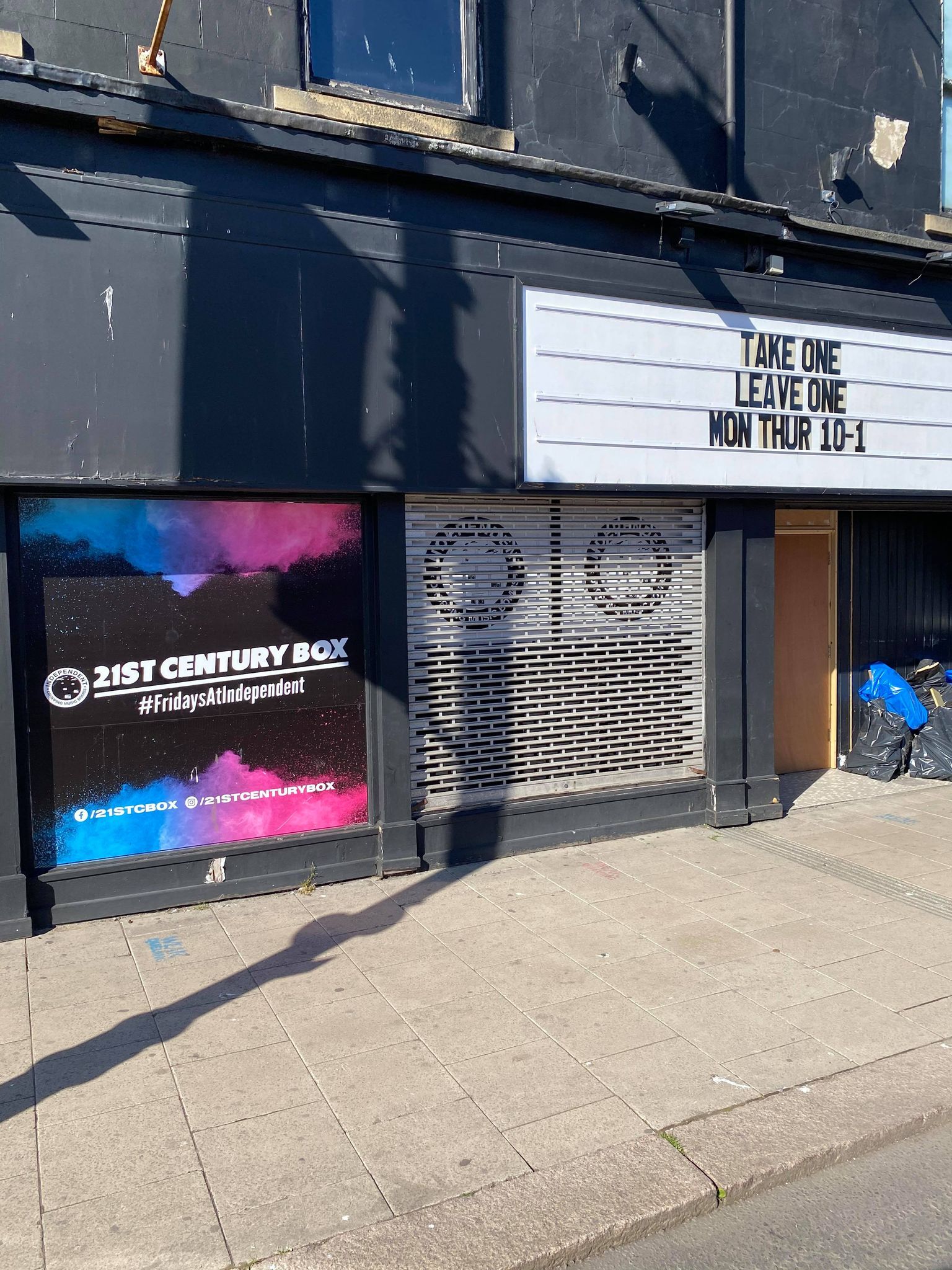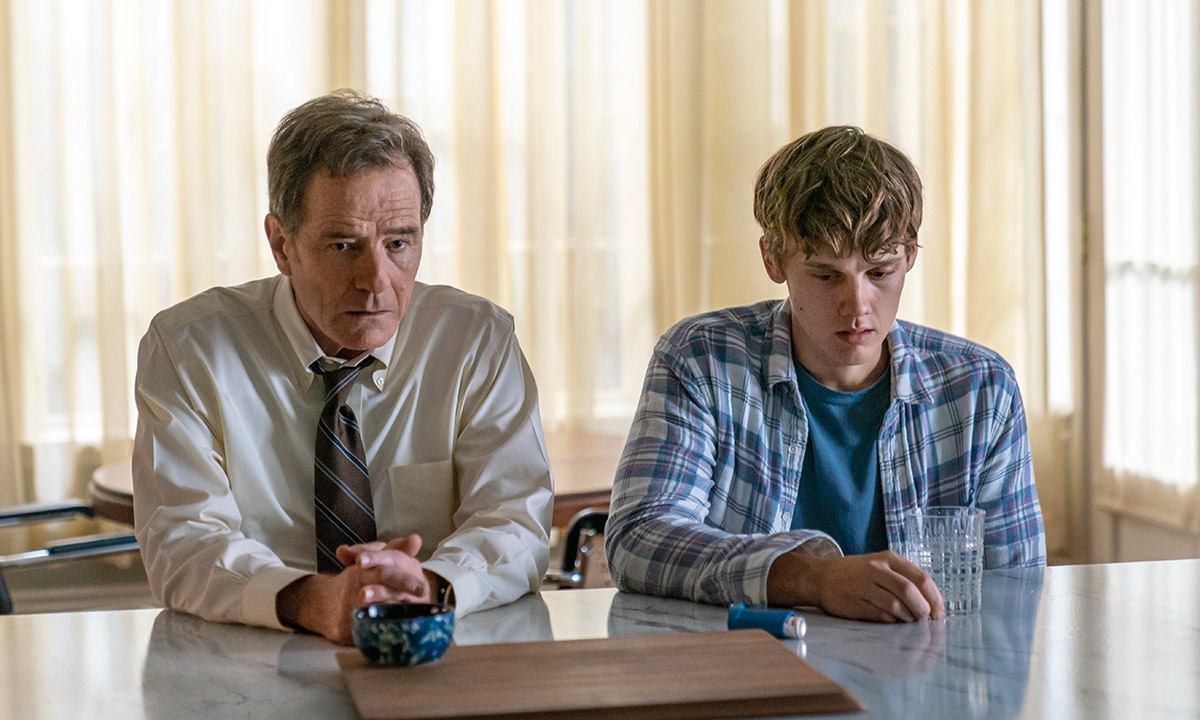How Robert Kilburn approaches disorder
23rd April 2021
The Seaburn filmmaker is no stranger to the weird and wonderful.
But where does a global pandemic fit in?
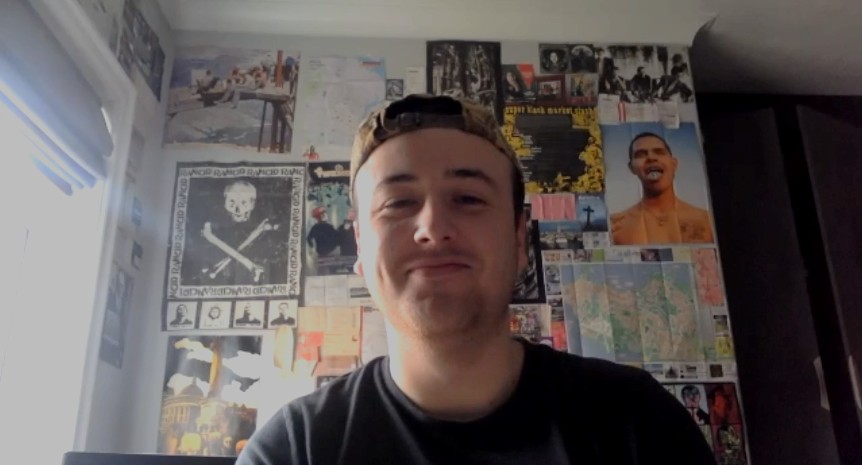
Kilburn and I speak face-to-face. Credit: Chloe Hemmings
WHEN I first approached Robert Kilburn back in December, I had been blindly foraging for an angle for an original piece on classic punk sub-culture in North East England. Swamped by barely relevant stories, I had failed to realise a great local hook had been right under my nose. An abundance of news articles on Kilburn’s work as creator of Tyne and Weird, a North East filmmaking organisation, circulated a plethora of captivating documentaries.
Yet to be completed, his most recent creation, Organised Chaos, depicts the region’s extensive punk history.
Almost four months on, we converse face-to-face, albeit virtually, where I am able to unpick the brain of the person I had previously spent weeks writing lots about, but simultaneously knew nothing about. His backdrop, festooned by pictures of music artists and obscure culture, exudes the personality I felt had been veiled slightly by the rigidity often found in text-based exchanges.
His filmmaking influences leak more of this quirkiness: Joshua Oppenheimer’s The Sound of Silence and The Act of Killing, which he thinks “are quite interesting”, and Werner Herzog’s Grizzly Man, which he describes as “a bit of a twisty tale.” He concedes, however, that documentaries “can be a bit more run and gun” than cinema.
Isaac Johnson, one of Kilburn’s closest colleagues, friend and former Digital Film and Production classmate at the University of Sunderland, defines his work as “niche.” “He’s really good at finding super unique stories,” he says. “The small crew run and gun approach we have taken to works really well. People can try and overthink their narrative, but so much of Rob’s approach is just capturing what unfolds for what it is. It’s just raw stories and I think that’s what people enjoy about him.”
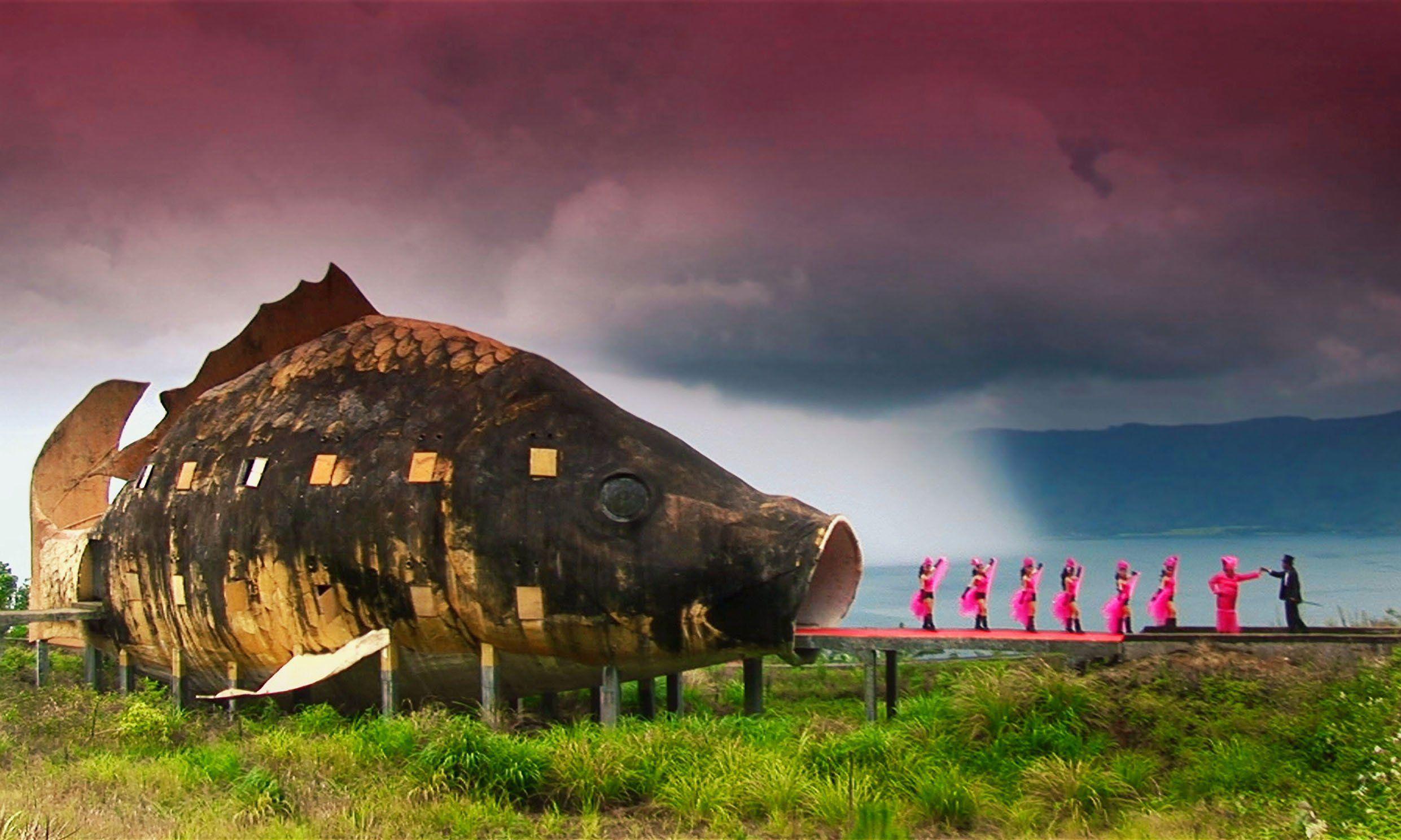
The Act of Killing (pictured) is a 2012 documentary film by Joshua Oppenheimer, which is about genocide in Indonesia. The Look of Silence is a 2014 documentary film, where an Indonesian man faces the people who murdered his brother during an Indonesian Communist purge in 1965. The two films are connected. Credit: Album/Alamy Stock Photo
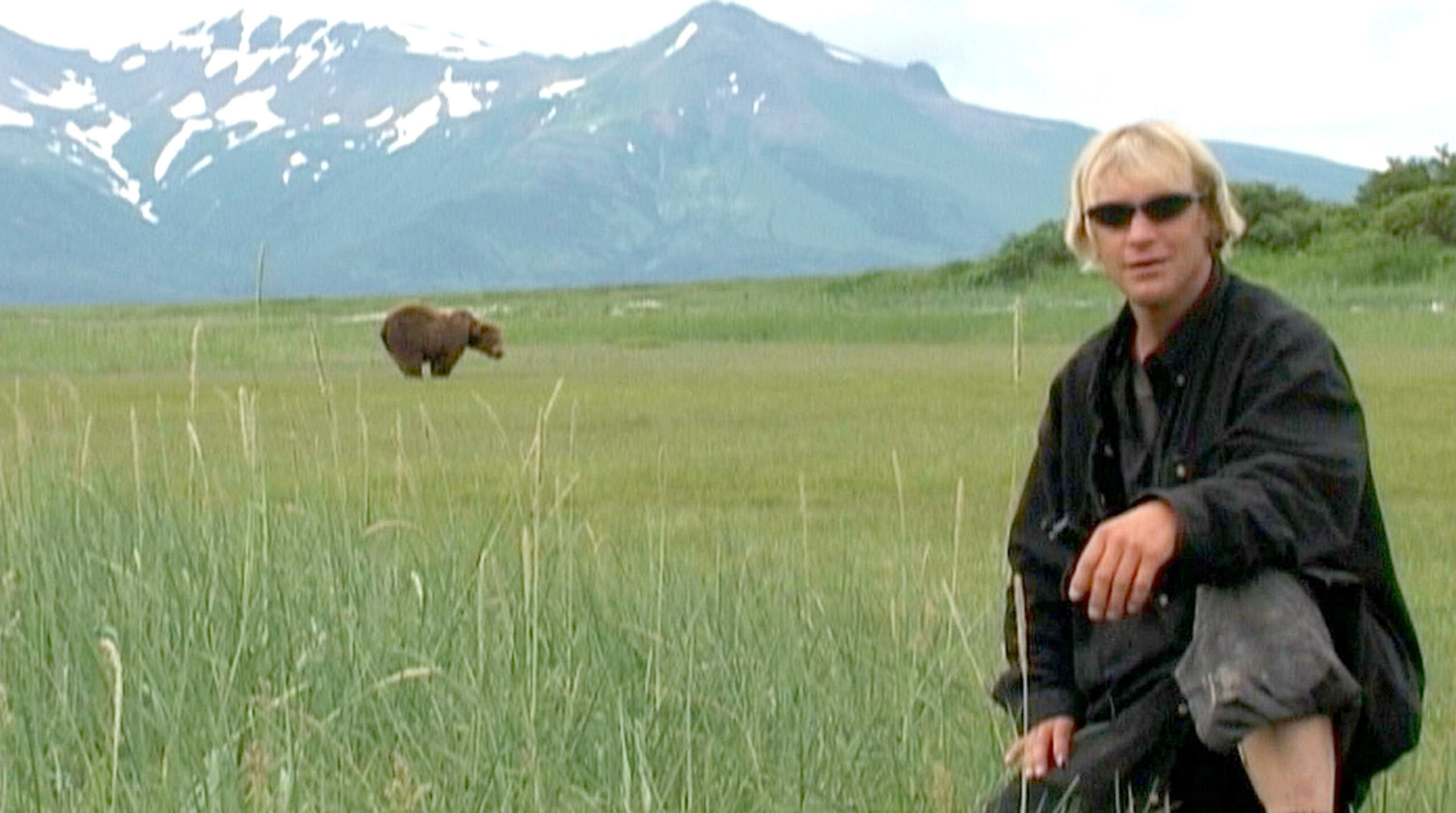
Grizzly Man is a 2005 documentary film by Werner Herzog, which tells the tale of documentary filmmaker and environmentalist Timothy Treadwell, who was killed by a bear in 2003. Credit: Pictorial Press Ltd/ Alamy Stock Photo
At just 27, Kilburn has, as he tells me, “ten or eleven” documentaries in tow. Some have even won awards, plus a nomination at the Royal Television Awards. Regardless, he seems humble and even marginally self-deprecating in places.
Fuelled by inspiration from watching documentaries Project Nim and Catfish as a college student, a 2015 film on Seaburn Zoo, titled I Remember When, was his firstborn. When I ask about it, his zest for the topic is clear, though he brands the final product “a bit static.” “It’s just, you know, a series of interviews really, with some pictures over the top,” he says. “But everyone’s got to start somewhere, I suppose, and from there it’s kind of evolved.”
While his calibre has upgraded, the Covid-19 pandemic instigates new challenges for Tyne and Weird, though the pre-pandemic lifetime, too, held its own.
Kilburn’s filmmaking is a team effort, and he admits assembling this team was “a lot easier at university”, before everyone got, as he says, “you know, jobs.” Deliberating the accessibility of and eventually securing interviewees was often an obstacle, as was the editing process. As for finances, the team’s pockets are never lined. Upcoming Organised Chaos is crowdfunded. He suggests the driving force behind his documentaries is not profit, but enjoyment. “And the stories are interesting.” he adds.
This is not to say profit is easy to come by for filmmakers during a global pandemic. More broadly, Kilburn says paid opportunities are scarce. Competition to land them is plentiful, and he admits staying afloat alongside Tyne and Weird involves “juggling that passion versus having to eat.”
Nonetheless, his diary is far from empty. There is a newly-released book for one; marketing and freelance work for two and three. One gig includes a commission creating visuals for a project by Arts Council England for Sage Gateshead, which will explore the relationship and similarities between North East England’s communities and Japan’s. He tells me it is set for release later in the year.
Right now, social restrictions appear to be Kilburn’s primary obstacle. There is now a more complicated dynamic when it comes to editing, whereby the tradition of uniting in someone’s home is now forbidden. For larger projects, he admits remote editing “can cause issues”, as seen during his time managing students behind the scenes of charity concert Sunday for Sammy in 2020, where the then-emerging pandemic hampered the schedule. Nonetheless, he made it work. “Through co-ordination and safety precautions, though, we overcame this hurdle.” he says.
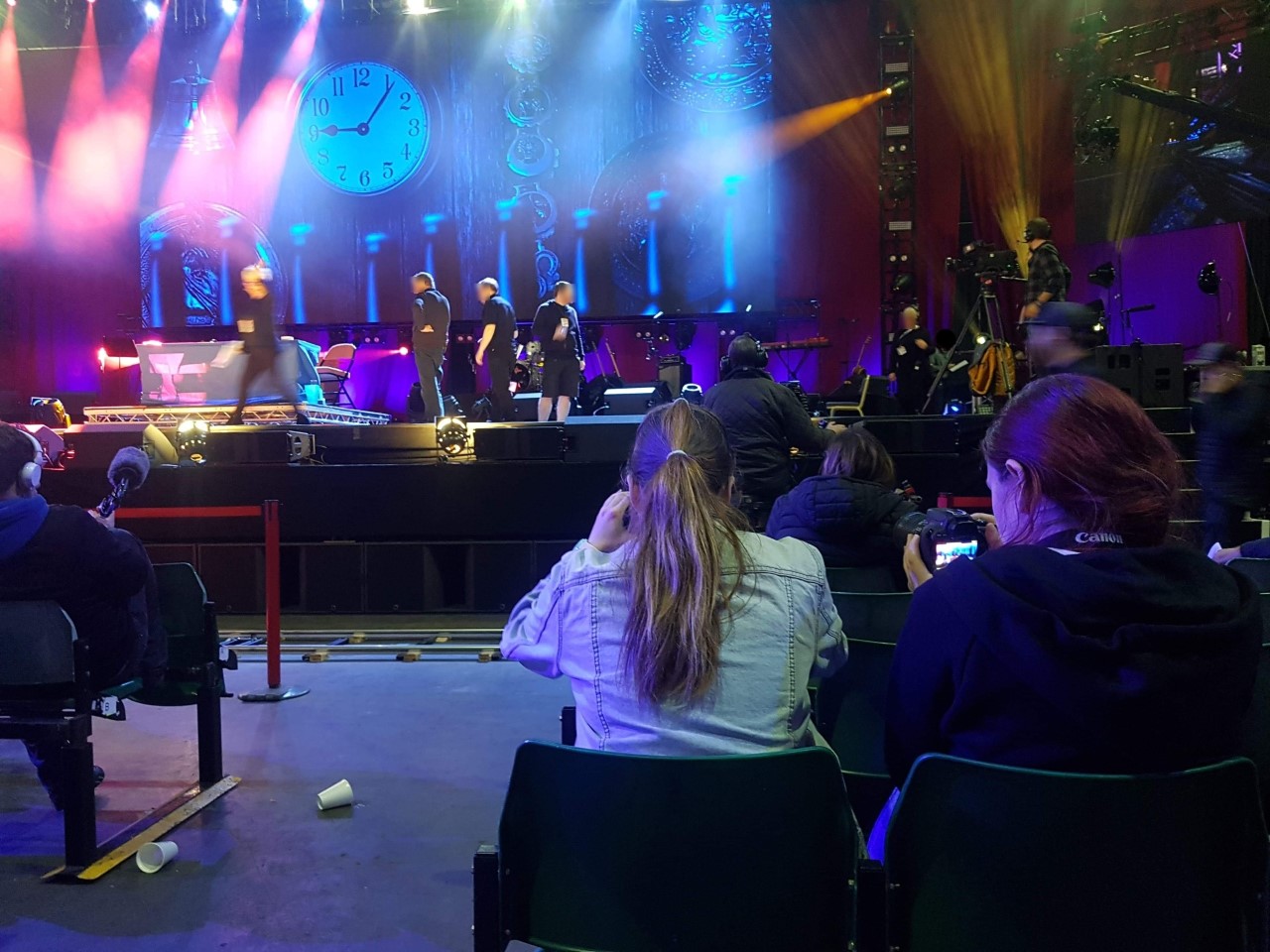
Behind the scenes of charity concert Sunday for Sammy, which was interrupted by the pandemic. Credit: Robert Kilburn
In some respects, interviewing is also tougher, both for the team and for interviewees themselves, as the threat of the virus has made many feel uneasy about scheduling interviews. Inevitable lockdowns often spell cancellation and rescheduling, including a London trip to film Toy Dolls frontman, Olga, last Christmas which, if taken, would have resulted in a period of isolation.
Somehow, Kilburn remains optimistic, revealing the pandemic has also “sort of opened up a few doors” for Organised Chaos. Virtual communicating has enabled him conversations with some local, prominent punk names. “There are contributors like Dunston Bruce from Chumbawamba and Charlie Harper from UK Subs, who I’ve interviewed over Zoom, who perhaps I wouldn’t have had any comment from otherwise,” he acknowledges. “So it’s kind of a bit of give and take.”
As filming for Organised Chaos continues, its title seems emblematic of the fusion between the pandemic’s disorder and Kilburn’s level-headed approach. Isaac believes his friend is “genuinely great” at holding it together. “We do weekly video calls, which eases working from home,” he says. “We work in safe environments when we are allowed and Rob has supplied us with additional PPE. We have a group chat and he constantly keeps us updated with potential shoot dates. He has been a really good producer in that aspect.”
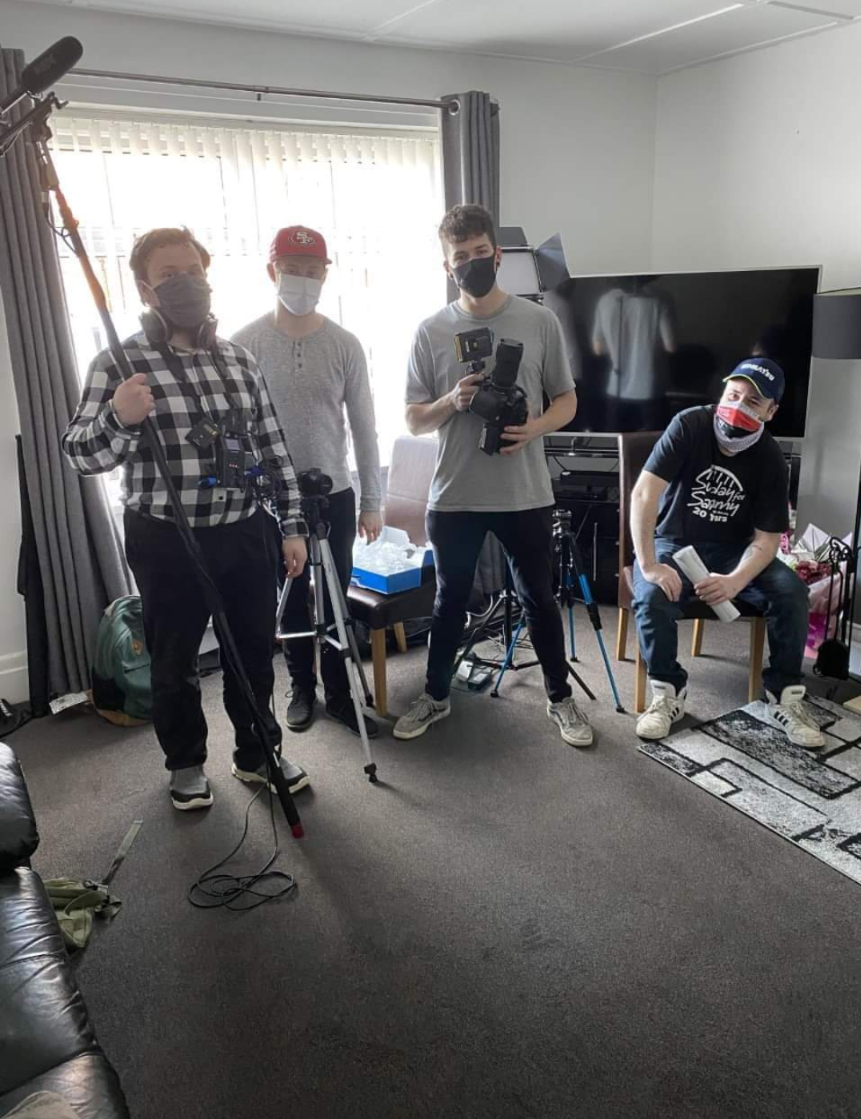
Isaac Johnson (second right) and Robert Kilburn (far right) gearing up for safe, face-to-face filming for Organised Chaos. Credit: Robert Kilburn
There is a past to dwell on and a future to look towards for Kilburn. He admits his pre-filmmaking identity was an unfocused one. His pre-pandemic self, and the world’s alike, was oblivious to what would unfold. After overcoming both challenges, he takes pride in what he has achieved. He hopes to eventually premiere Organised Chaos in a venue among drinks and friends: a commemorative end to a weird and wonderful chapter, ready to begin another.
Credit: Chloe Hemmings

